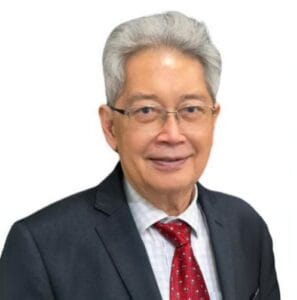
Professor Ng Soon Chye is known as the “Father of IVF” in Asia. He pioneered Asia’s first successful in-vitro fertilization (IVF) in 1983.
Specialist in Reproductive Medicine | Pioneer in Assisted Reproductive Technologies
Professor Ng Soon-Chye is a senior specialist in Reproductive Medicine with decades of experience in advancing fertility treatment and women’s health.
He is known for his foundational work in Singapore’s fertility landscape, having initiated the country’s first in-vitro fertilisation (IVF) program in 1982. This programme led to the birth of Asia’s first IVF baby in May 1983.
In 1989, Professor Ng developed the world’s first SUZI (sub-zona insemination) baby using a novel micro-injection technique. He later played a key role in the development of intracytoplasmic sperm injection (ICSI) and oversaw the birth of Asia’s first ICSI baby in 1993.
Professor Ng held various leadership roles at the National University of Singapore (NUS) and National University Hospital (NUH) from 1977 to 2003. He was Chair of the Department of Obstetrics and Gynaecology at NUS and served as Chief of O&G at NUH. He also chaired the Committee of O&G at the NUS Graduate School of Medical Studies from 2000 to 2002.
His areas of clinical interest include infertility, gynaecological laparoscopy, and hormonal disorders. He has also served as an advisor to Singapore’s Ministry of Health on infertility matters. Currently, he holds an adjunct professorship with the Department of Obstetrics & Gynaecology at NUS and has previously taught Developmental Biology at Nanyang Technological University.
From 1997 to 2003, Professor Ng directed the WHO Clinical Collaborating Centres for Research in Human Reproduction and Maternal-Child Health/Family Planning. He has published extensively on human embryology and IVF technologies and is known for his technical innovation in developing micro-injection methods for assisted reproduction.
In 2015, he was awarded the Fellowship of the Asian Oceanic Federation of Obstetricians & Gynaecologists, a distinction held by fewer than 25 individuals globally.
Beyond reproductive medicine, Professor Ng leads a research initiative on induced pluripotent stem cells (iPSCs) for endangered wildlife species, working closely with the Mandai Wildlife Group on stem cell technologies for conservation.